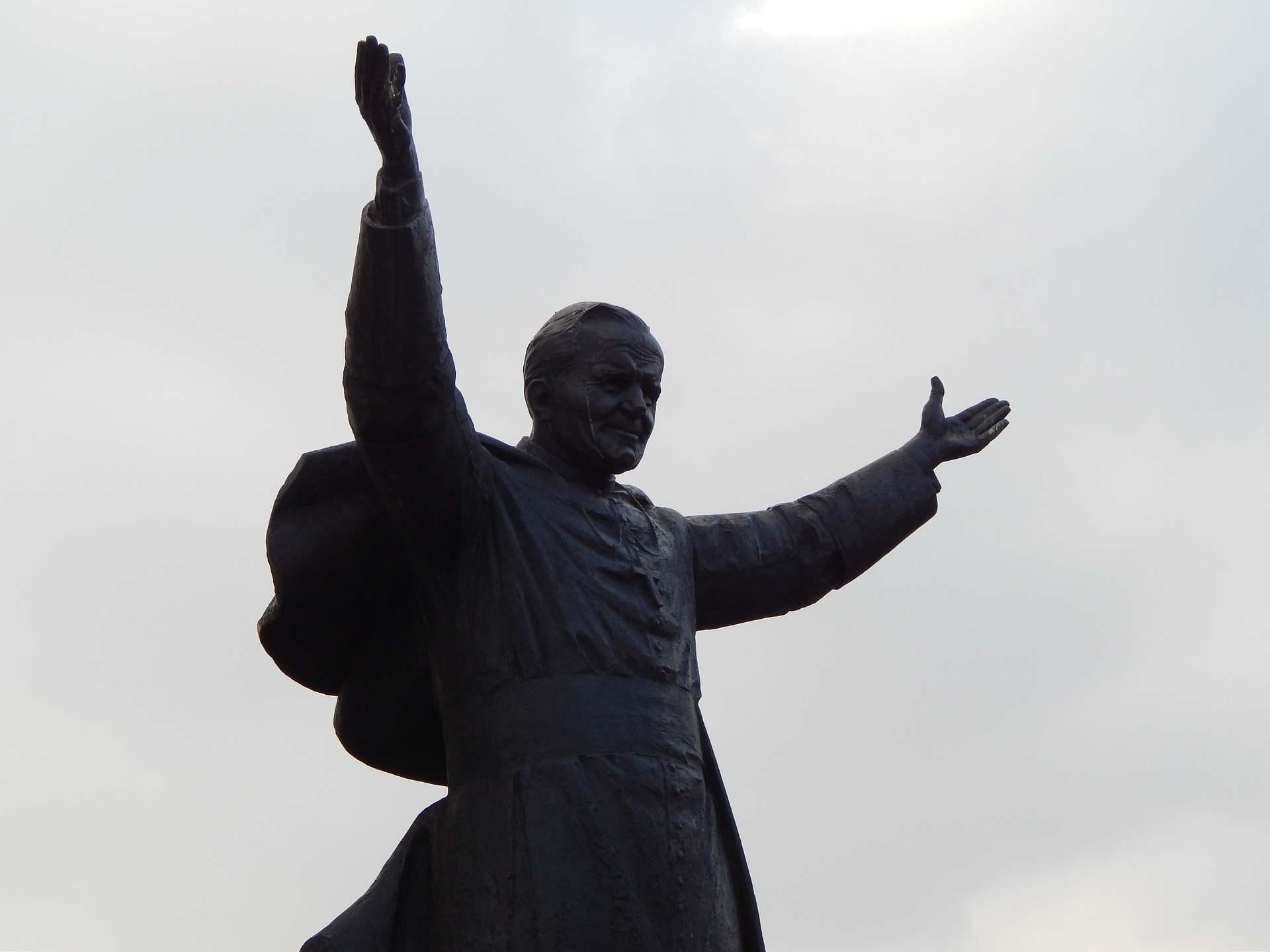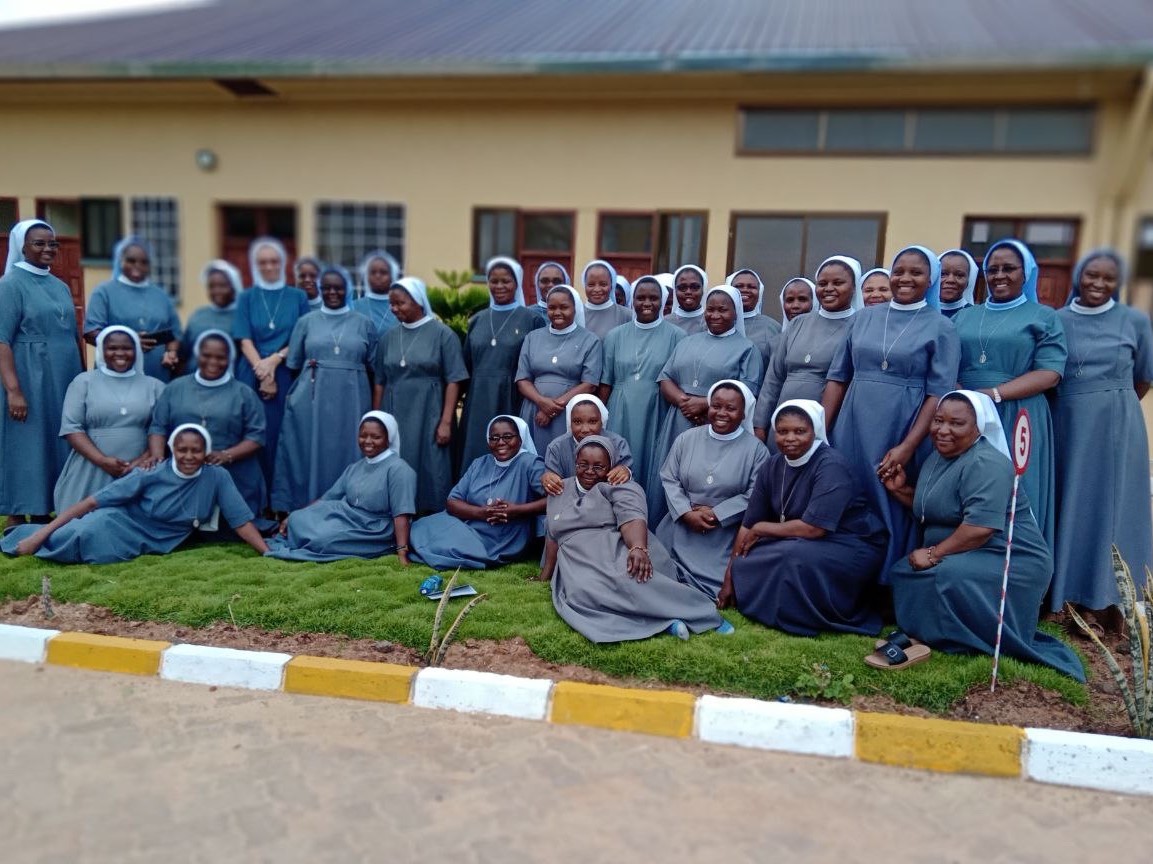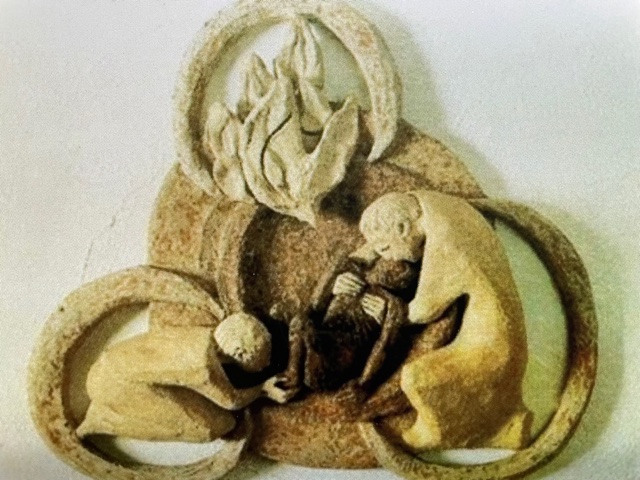
Nov 5, 2022 | SPIRITUALITY
Wine – as old as mankind?
Wine is an ancient cultural asset. Since the earliest times, people have grown wine, cultivated it, drunk it at festivals and celebrations, and last but not least experienced its intoxicating effect. All of this can also be found in the scriptures of the Bible. In this way, Jesus also takes up the image of the vine in his preaching in order to address a beautiful theme: the bond with God.
Connected or disconnected
The theme of the metaphor of the vine is actually clear. Remain in me, then I will remain in you. And only if you abide in me can you bear rich fruit.
Of course, if I cut the grapes, they can no longer grow, but dry up. And if I detach myself from the mountain guide’s rope during a mountain hike, it’s possible that I’ll slip and, in the worst case, fall. So, it seems sensible to remain connected to the vine or the mountain guide’s rope.
Communion – connection with Christ
In his metaphorical speech, Christ now addresses the connection to him. Only if you abide in me can you bear rich fruit. What does this bond with Christ look like?
Spiritual exercise: how would you describe your communion with Christ? Prayer, having time for him, living up to his commandments…?
Communion subject to conditions?
Jesus himself describes how the connection with him could look like. If you keep my commandments, you will remain in my love. The sentence reminds me of my school days: If you’re good, I’ll read you something. So, as students, we have to pay in advance before we get anything from the teacher. Is that the same with God? Do we have to earn His grace first?
God takes the first step
The Bible has a different order:
– Vocation narratives: God calls. Then comes the story of the called one; and despite all failures, God does not turn back his calling.
– Rule and serve: Jesus not only speaks of serving, he is the first to do so (washing of feet); to this poem by Goethe: Legend.
– Forgive: Jesus reaches out to people and this radically changes people’s lives. Example: Zacchaeus.
So, it is not man who makes the advance payment, but God. A gracious God.
joy in the gospel
A few years ago, Pope Francis issued an apostolic exhortation. Title: Joy in the Gospel. I enjoyed reading it very much. The Pope’s imagery alone impressed me. “The church is not a customs post, but a father’s house.” And elsewhere “The church is a house with open doors.” Open doors – by this the pope means not only the church doors, but open doors for the people, and open for the sacraments the church. Sacraments are not rewards for a good life, but strengthening for the weak. So, it’s the other way around: we don’t have to make advance payments, but rather God gives his love undeservedly and gratuitously. So, he wants us to stay on the vine and keep in touch with him.
stay in my love
In his first encyclical, Pope Benedict XVI writes: about love He distinguishes between two types of love. One kind is a love that flares up quickly but then dies out just as quickly. The other kind of love grows slowly, but is long-lasting and constant. In his metaphor of the vine, Jesus invites us to search for that abiding love.
Free espresso
In Naples there was once a beautiful habit. If someone was in a particularly good mood and drank an espresso in a bar, they would pay two instead of one. The second coffee was reserved for a guest who would come after him and who could not pay for it. So, a gesture of humanity.
I can well imagine the surprise when someone wants to drink an espresso and doesn’t have to pay for it. Surprises of this kind change life and bring light into the often-dull everyday life. In the Bible one often reads of such surprises.
The fact that there is no direct encounter between the donor and the recipient is remarkable. Poor guy doesn’t know who to thank. This reminds me of the rules of charity in ancient Judaism. There is a room with two doors. The givers enter through one door and deposit their offerings. After they leave, the poor come through the other door and receive the offerings. This does not create any dependency. An act of dignity for the recipient.
But even the donor does not know who is getting his espresso. Maybe a friendly person, but maybe also a completely unsympathetic type. And yet he gets the support. For me, this gesture breathes a vastness that I think is great. I experience that with God. He does not make his donations dependent on sympathy or gratitude. He just gives away. A bountiful vine.
Prelate Dr. Stefan Dybowski
09/09/2022 Monthly Lecture St. Franziskus Hospital, Berlin-Tiergarten
09/20/2022 Monthly Lecture Monastery St. Augustine, Berlin-Lankwitz

Aug 28, 2022 | DAILY BREAD, SPIRITUALITY
The Beheading of Saint John the Baptist
Gospel Mark 6:17-29
Our indifference is that shuts down the voice of truth in ourselves and around us. All the guests of the King did not speak a word against the injustice in the wish of the daughter of Herodias. Because they did not want to displease the king. How many times we kept silence against injustice to keep ourselves in our comfort zone? The beheading of St. John the Baptist is an example of our silent or active participation in the injustice among us. All the more, it’s important not to kill the voice of our own conscience with our own indifference. Respond to the grace of truth and fight injustice.

Mar 14, 2022 | SPIRITUALITY
God of our fathers, great and merciful! Lord of life and peace, Father of all people. Today we run to You and invoke Your help through the intercession of Saint Joseph, the Careful Defender of Christ. You yourself chose him so that, as the Bridegroom of the Mother of God, he would become the Head of the Holy Family. For us, too, as Sisters of Mary Immaculate, he is a Support in difficulties, but above all he is the Father and Guardian of our Religious Family. Today we stand before you in this National Shrine, to entrust our Congregation with love in our heart, to entrust you with our future, because time and everything is yours. We entrust to you our fear and doubt about what constitutes our present. Our past is in your hands. Our present is in your hands. And our future is in your hands. Each and every one of us is in your hands. Give us the courage to keep believing that we are in your hands. For your will is peace, not torment. Our fear for the future breeds torment, and it is a terrible feeling, as devastating as war. Saint Joseph, God has made you head of his house and overlord of all his possessions. We invoke you today as the Terror of Hell’s Spirits. You are here to help Archangel Michael to save our souls from eternal damnation. We fear a war that brings death and destruction. But this war is born in us and is in us, when we do not cultivate relationships, when we kill ourselves with gossip and slander, when we deviate so far from the commandments and regulations of our religious orders. Plead for us, our Holy Patron, for a peace that begins in our hearts. Let them be full of God, His love and goodness, and then we will survive. God, one and all-powerful, Damn war and overthrow the pride of the violence. You sent your Son, Jesus Christ, to preach peace to those near and far and to unite people of all races and generations into one family.
We invoke Your intercession, Saint Joseph, we also invoke You, Saint Michael the Archangel, and You, Saint Patrons of Poland and our Congregation, and we cry out in the words of Saint John Paul II: Let there be no more war – a bad adventure from which there is no turning back, let there be no more war in us – a maze of struggle and violence. Let the war in Ukraine, which threatens your creatures in the sky, on earth and in the sea, cease.
With Mary, the Mother of Jesus and ours, we implore you to speak to the hearts of people responsible for the fate of nations. Destroy the logic of retaliation and revenge, and give through the Holy Spirit new generous and noble solutions, in dialogue and patient waiting – more fruitful than violent warfare.
Father, give our times days of peace. Let there be no more war. Amen.

Jan 13, 2022 | SPIRITUALITY
This year in our Congregation we celebrate the 50th anniversary of our mission in Tanzania. May this prayer unite us in celebrating together.
O God the Father, we your children come before you with a heart of humility and great gratitude, you who are the source of all goodness and glory, we always give back to you those who are the giver and giver of various gifts. Dear Father, in this year of our 50th jubilee, we thank you and ask that your blessings continue to be with us and specially to live the Spirit of our Founder faithfully: as our motto guides us. LIVING IN LOVE AND UNITY, O God the Father Almighty through the intercession of our Mother Virgin Mary who is the steward of our congregation, may she be our eternal refuge. Amen.

Jan 2, 2022 | SPIRITUALITY
For a year we thought about “unity”. In doing so, we orientated ourselves on the Holy Scriptures, on the times and festivals of the church year, as well as on experiences of a human and Christian life in general. If you want, you are welcome to look again at the individual topics that we have dealt with over the course of the year.
I would like to ask you the following question: Could you imagine discussing our considerations with someone who does not believe in God? My answer: I think so. Because our thoughts on unity will also be understood and affirmed by people who live without religion.
But as much as our topics can be experienced in everyday human life so far, I would like to focus on God on the last day of the month today, on the three-one God.
Trinity – a secret that says a lot
When we talk about the Trinity, we quickly say: It is a secret of our faith. That is also true, because we cannot explain this secret. I checked my sermons on Trinity Sunday. Then I spoke about what the Trinity does (Creator, Redeemer, Comforter and Companion) and how to thank and honor it. Today I want to reflect with you about what the Trinity is like: one God in three persons. Or as it says in the preface: With your only begotten Son and the Holy Spirit you (God the Father) are one God and one Lord.
Monarchy or coalition
Allow me to take a look at politics. Imagine being a queen or a king. Kings were sole rulers, did not need to ask anyone and could make self-important decisions, sometimes really as the mood took them. With tyrants and dictators, the peoples have often had to experience this painfully. Different in a democracy. Here people can choose who should rule them. And since there is not always an absolute majority, coalitions are formed. So imagine if you had to form a government and were looking for a coalition partner or two. You have to look for a partner, get to know him better, listen to what he wants, make compromises, keep looking for a dialogue after differences of opinion, and sometimes for the sake of the community forego some personal profiling (humility). Can you discover the Triune God there..?
Mission and obedience
We find further thoughts on the unity of God in the farewell speeches of Jesus in the Gospel of John. Jesus then prays for the unity of his disciples: All should be one just as we are one, I in you and you in me (Jn 17:21). Jesus had already spoken about what his union with the Father looks like: I did not come to do my own will, but the will of my Father. Unity with the Father is shown in his mission and obedience to the will of the Father. And this is not a blind or forced obedience, but a voluntary and loving obedience.
Give testimony
Closely related to his mission is the commission to bear witness of the love of the other. This is said both of Jesus, who testifies of the love of the Father, and of the Holy Spirit, who testifies of Jesus. Jesus gives an impressive testimony when he stands in front of the Roman governor Pontius Pilate: This is why I came into the world to bear witness to the truth (Jn 18:37). For Jesus, the truth is God’s unconditional love for people. For this truth he lived and even dies for it.
They should be one for the world to believe …
A look back at church history could make one pensive. The dark chapters are not just the time of the Crusades or the machinations of the Inquisition and the witch trials. Just as dark are the times when Christians quarreled and even fought with one another. I am thinking of the separation of the Orthodox Church (1054), the Reformation (1517), the schisms within the Catholic Church, where there were suddenly two popes, and of course the terrible religious wars such as in Ireland. These are testimonies that make it difficult to believe.
The balls – a lesson from God for unity
Once upon a time there was a man who knew a wonderful game. He collected colored glass balls. And when he tossed these balls through the air, they shone wonderfully in the sun.
This man had a child he was very fond of. He wanted to teach this child this game. “Look out!” Said the man, “I’m going to throw you one ball at a time. Each ball has a different color and a different name. This one is called joy, the one over there work, the one over there peace, this suffering. You should throw every bullet back to me immediately. That is the point of the game: alternating give and take. The balls only shine so brightly in flight. ”
The child understood and the game could begin. The balls flew back and forth, and in flight they shone in the sun.
But then the child wanted to keep a nice ball. It hugged her tightly. Then the ball broke. In fright he forgot to catch the next bullet; it fell to the ground and was broken into a thousand pieces. The more the child tried to hold onto the balls, the bigger the pile of broken pieces became; the child was cut, hurt and bleed.
The man who played with the child was so sorry. And because he loved the child so much, he came over, bent down, and carried away the broken pieces. He cut himself too and was bleeding. But every wound he got himself healed a wound on the child at the same time. After all, it was so cut up that it seemed impossible to continue the game. But he was ready to keep playing.
But slowly the child understood. And when the ball of joy came, he threw it back in a high arc to the man, and the ball shone in the sun. And when the suffering came, he did the same. Every movement was directed towards the man now. And see, the game was very good.
Prelate Dr. Stefan Dybowski
December 6th, 2021 Monthly lecture St. Augustinus Monastery, Berlin-Lankwitz

Jan 2, 2022 | SPIRITUALITY
November
November brings our future to life like no other month. It reminds us that at some point we must give our lives back into the hands of the Creator. But it also has a promise: eternal life with God.
If you take these two messages seriously, think about the specific consequences. What if God knocked on me in a week, or even tomorrow?
Lichtenberg: Everything in view of eternity
In the diary that the Provost of Berlin Cathedral Bernhard Lichtenberg wrote while in custody, we find the sentence: Today I want to see everything in the light of eternity. Lichtenberg will have had his future path quite clearly in mind. So he took earthly things very seriously, but saw everything under the standard of eternity. A good basic attitude for a spiritual life.
Spiritual Exercise: What else do I want to do with a view to eternity? What do I want to change? What do I want to let go?
The wide ditch
You know the parable of poor Lazarus and the rich man. Both have to die, one goes to heaven (Abraham’s womb), the other has to suffer in hell. Heaven and hell are simply described here by reversing the living conditions: Whoever has had a good time in this world has to suffer, and whoever had to suffer, paradise is now given to him.
This explanation makes me very thoughtful, almost afraid. Because I have to say that I’m doing really well in this world. Do I then have to expect the same fate as the rich man?
But Jesus gives another explanation in his parable. There is talk of a wide ditch that separates the two from each other. Who made this trench? God? And so slowly the rich come to the realization that they dug this wide ditch, back in their lifetime, when did not see the poor and did not want to see them either.
Another spiritual exercise: Where do I see such rifts in my life? What or who do these trenches separate from me? Am I ready to see such rifts and maybe even to bridge them?
None of us live for himself … (Rom)
The second message of November is the promise: And await a new life in the glory of God.
I would like to give you a text from the Holy Scriptures that you know from many funeral services. The apostle Paul wrote:”
For none of us live for ourselves alone, and none of us die for ourselves alone.
If we live, we live for the Lord, if we die, so we die for the Lord.
Whether we live or die, we belong to the Lord. (Rom 14: 7-8)
In the talks, reference is often made to the second line, the relationship with God. But before that, Paul puts our relationship with one another. None of us live for ourselves, and none of us die for ourselves.
Our relationship with God is therefore closely related to the relationship we have with people. And if Paul then emphasizes that we have to give an account to God (Rom. 14:10, 12). None of us live by ourselves. A sentence that could be interesting for me in the long term.
Karl Borromeo – Reformer of the Church
None of us live for ourselves. What does this mean, and what consequences this also means for the communion and unity of the church, can be seen very well in a reformer: in St. Charles Borromeo. Let’s go back to the 16th century. Martin Luther’s theses caused an uproar in the Church in Europe. The church was divided. How could one find the unity again? The answer was sought in a council: the Council of Trent. One of the key figures at this council was St. Charles Borromeo. His uncle was Pope and he had a brilliant career ahead of him. But he has withdrawn completely, was very undemanding, and has dedicated all of his work to the church. One life for – in this case specifically for the Church. Unity was more important to him than himself.
The coming Christ
The time of Advent stands before us, the time when we will be reminded of the second coming of Christ. We as Christians have apparently got used to it: if he hasn’t come back for 2000 years, then it won’t happen in the next 20 or 30 years either. It looks different when it comes to my very personal life. It can happen very quickly that I stand before the face of God. The broad rift could then be a crucial issue. So maybe for this Advent you will take the will of our founder Rev. Johannes Schneider again to hand, or even better to heart.
Prelate Dr. Stefan Dybowski
November 22nd, 2021 monthly lecture St. Augustinus Monastery, Berlin-Lankwitz






